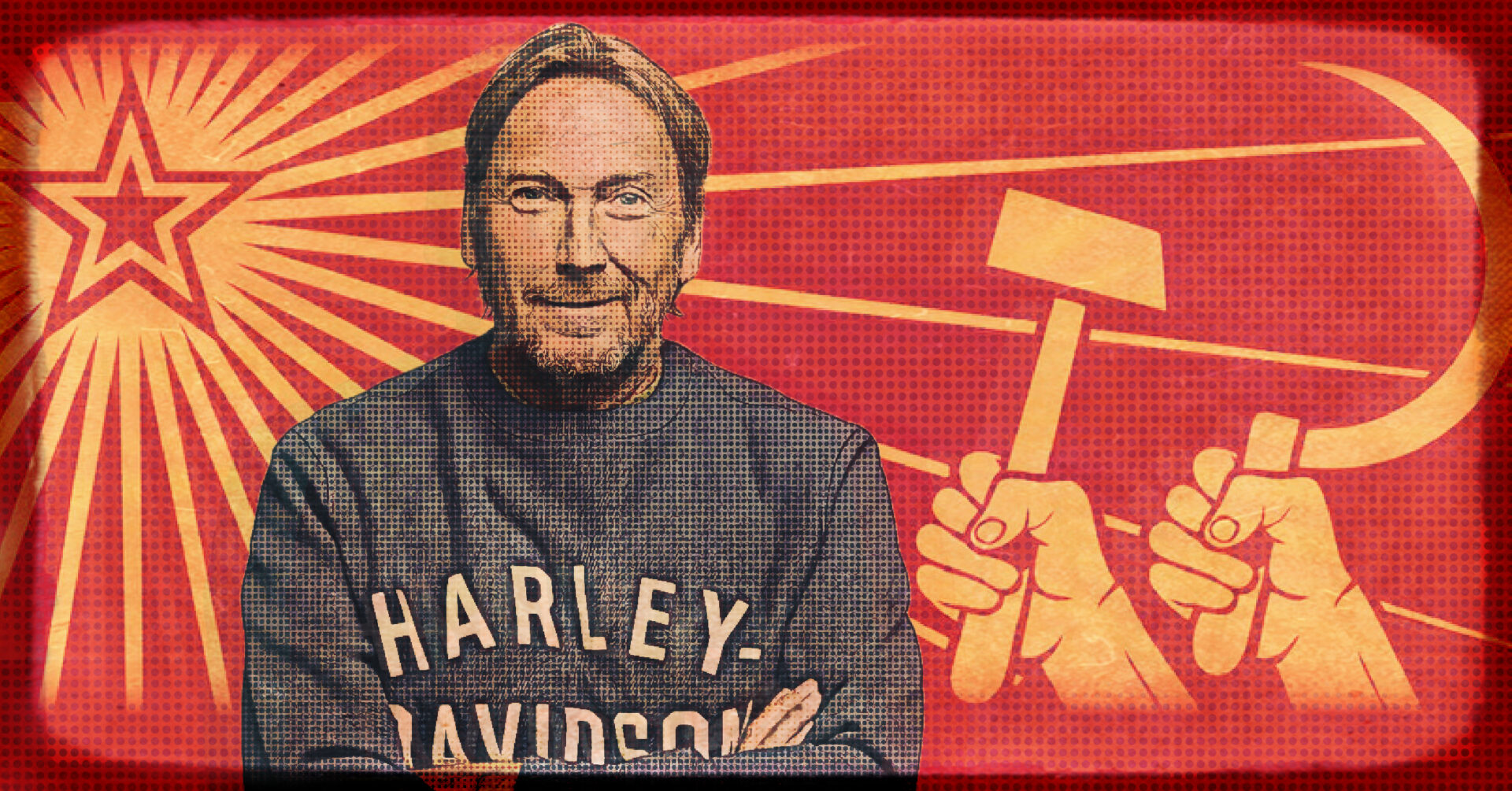Deaf and Blind: The Maladies of American Diplomats, by Patrick Lawrence

Here is a modest proposal, nothing too radical, just good sense. Turn over Antony Blinken and Jake Sullivan to the Iranian authorities on the understanding the two statesmen, very loosely defined, would spend 444 days at the U.S. embassy compound in Tehran. Let’s think of it as a reenactment.
Said premises, long a mess of barbed wire, weeds, brambles, mold and anti–American graffiti, is now a museum. The Den of Espionage, as it is called, is dedicated to the shameful history of U.S.–Iranian relations leading up to that fateful day, Jan. 16, 1979, when the shah was deposed by a nation that had had enough of him. Those unkind Iranians had to rub it in: The old graffiti is now covered over with mocking murals featuring Mickey Mouse and McDonald’s.
All the better, I say. My theory is that the Biden regime’s secretary of state and national security adviser would return from their year and 79 days in the embassy—sitting on the floor, sleeping in the offices, washing their socks in bathroom sinks, the whole nine—transformed almost beatifically into… into statesmen of high purpose and deep insight, the two being devoid of both as we have them now.
I am inspired to these thoughts by a good obituary The New York Times ran in its May 18 editions on the death of a good man named Moorhead Kennedy. Moorhead Kennedy’s blood ran very blue: Upper East Side childhood, Groton, Princeton, Harvard Law, a career in the Foreign Service. Having learned Arabic, he was something of a Middle East man, his assignments over the years including Yemen and Lebanon. And then destiny placed its gentle hand on Kennedy’s shoulder: He was on a temporary assignment as economics attaché in Tehran when the fecal matter hit the fan.
And so Kennedy was among those 52 Americans—diplomats, others in civil service jobs—who spent the famous 444 days captives of militant but nonviolent, I would say altogether righteous students who had broken down the embassy gates and climbed over its walls. They were of many stripes, secular and religious, but they were all repelled by the shah’s coercive insistence on Westernizing Iran in the worst kind of way—“Westoxicity,” as it came to be called. Many of them spent their days poring through the embassy files and diplomatic cables to reconstruct just how, covertly and criminally, the U.S. had been attempting to overthrow the Iranian government for the second time in 26 years.
I recall years later seeing black-and-white news footage of the hostages as they filed up the stairs to board an Air Algeria flight home on Jan. 20, 1981. One of the diplomats turned back a few steps short of the cabin door, shouted something the film did not record, and gave the Islamic Republic and all its citizens a great big middle finger. Ah, yes, I recall thinking, with what dignity are we represented to the world.
Moorhead Kennedy would have had as much reason to vent his anger as that vulgarian on the stairs. He was blindfolded and tied to a chair when students filed into his office. But something happened to Kennedy during the long months that followed. He began talking to those who had stormed the embassy. And most of all, he began listening to them. I have long argued that the first signs that an imperium is in decline are when it goes blind and deaf; it can neither see others for who and what they are nor hear what they have to say. Kennedy proved to suffer from neither of these symptoms.
As he later recounted his experience in an interview with a small public-affairs journal in Connecticut, Kennedy seemed to have brought a singularly open mind to what was supposed to be a brief assignment filling in for an absent colleague. “I was very interested in seeing a revolution in progress,” he told a reporter from CT Mirror in 2016. “It was a very fruitful time until, all of a sudden, I heard a shout from the Marines, ‘They’re coming over the wall!’ And then a whole new experience began.”
There is a wonderful photograph of Kennedy atop The Times’s obit, taken in the embassy during his captivity. It shows him sitting at his desk, calmly reading with his fingers to his chin. On the floor beside him are two colleagues whose beards make them look like they are among Kennedy’s captors. On his desk you see the paraphernalia of makeshift meals: a jar of mustard, a jar of Sanka repurposed as a sugar bowl, a box of Cocoa Krispies. I suspect Kennedy’s apparent composure had something to do with that unshakable aplomb you often find in American bluebloods.
It is odd now to think you are looking at a man midway through a life-altering metamorphosis from which he had the integrity never to turn back. It was in the embassy that Kennedy began to reflect on what he was doing as an American foreign service officer and to conclude that what he was doing was emphatically not what he ought to have been doing because the nation he served had it all wrong. “Mr. Kennedy’s thoughts on U.S. foreign policy,” as The Times’s obit explains, “were partly shaped by discussions with his captors.”
“Those Americans who applauded the Westernizing efforts of the shah had little notion of how his programs had disrupted lives at all levels of society,” Kennedy wrote, when he looked back later, in The Ayatollah in the Cathedral: Reflections of a Hostage (Hill & Wang, 1986). “Many Iranians, disoriented, forced to think in new and strange ways, to perform unfamiliar tasks in accordance with unfamiliar norms, humiliated by their inadequacies as they tried to behave as Westerners, and disinclined to become proximate Westerners, second-class at best, sought above all for a renewed sense of their own identity.”
There is something brilliant, in a certain way almost miraculous, in the deep, personal transformation implicit in those observations. Kennedy was telling us he learned while in the embassy a lesson I have long considered the most fundamental that our time requires of us but one too few of us even attempt: This is the capacity to see from the perspectives of others by way of seeing them with clear eyes and hearing them with open ears.
That “whole new experience” when Iranian students burst into his office does not seem to have ended until Kennedy died at 93 on May 3 in Bar Harbor, that waspy redoubt along the Maine coast. Upon his return to the States, he acted swiftly once the ticker-tape parades were over and the Klieg lights were off. He resigned from the Foreign Service without hesitation and turned himself into a dedicated, admirably insightful critic of U.S. foreign policy, bringing to bear his years of experience on the inside.
He lectured widely, interviewed often, and wrote extensively. As soon as he left the Foreign Service he founded the Cathedral Peace Institute at St. John the Divine on Manhattan’s Upper West Side, the longtime home of many an activist in international affairs. The Times quotes an appearance he made on a public-access television show in 1986, when his book came out:
When it comes to foreign affairs, the last thing in the world an American is willing to do is to think or to try to think what it would be like to be a Soviet, to be an Arab, to be an Iranian, to be an Indian. And the result is that we think of the world as a projection of ourselves, and we think that others must be thinking along the lines we’re thinking. And when they don’t, we’re troubled by it.
This is luminous thinking. Kennedy did not limit his concerns to this or that mistaken policy—we got it wrong in Lebanon, in Angola, or wherever the world over. I value him in part because he took on the psychological deformations that have so much to do with what has made American foreign policy a rolling disaster since the 1945 victories and Washington’s pursuit of “global leadership,” that polite term for aggressive hegemony.
Here he is on what has become a familiar obsession within the policy cliques since his time in captivity began 45 years ago:
The elements in the Arab world and in Iran are reacting against us through another kind of war—a low-intensity war called terrorism. And I think it is a way of trying to make us understand, or at least be aware, that they have a different point of view.
When I read this remark my mind went immediately to that intellectual charlatan of the Bush II years, Richard Perle, who argued with supreme and consequential stupidity following the 2001 attacks, “Any attempt to understand terrorism is an attempt to justify it.” And then I thought of the discourse concerning Hamas: One must call Hamas “terrorist” at all times and without exception and in every mention so as to avoid all understanding, just as Perle insisted.
The line of thinking we call perspectivism—the recognition that none of us has a monopoly on truth, “values” or interpretations of reality—has been around since Nietzsche pondered it in the late 19th century. Moorhead Kennedy is what it looks like in practice, on the ground, reading at a desk while captive.
How impoverished have we made ourselves since Kennedy’s time. How vast a distance lies between his thinking and the ideological non-thinking of Antony Blinken and Jake Sullivan. They are guilty on a daily basis of every sin Kennedy identified.
The day before The Times published its Moorhead Kennedy obituary, Sergei Ryabkov, Russia’s deputy foreign minister, reflected on the state of U.S.–Russian relations in an interview he gave TASS, the Russian news agency, in mid–May. “They live in a bubble,” he said of the Biden regime’s policy cliques, “and do not perceive outside signals that go against their preconceptions.” He went on to say of the Atlantic nations as a whole, “We feel not an ounce of trust, which triggers political and even emotional rejection.” Isn’t this a good description, albeit coincidental, of how the Iranian students thought and felt toward the U.S. when they climbed over the wall and burst through the gates in 1979?
Send Blinken and Sullivan to the Den of Espionage, I say. Wouldn’t there be some slim chance the bubble they share would burst? And that maybe they would come home with a perspectivist grasp of the world they might suddenly see and hear, and they would stop running America’s standing in the world straight into the ground?



